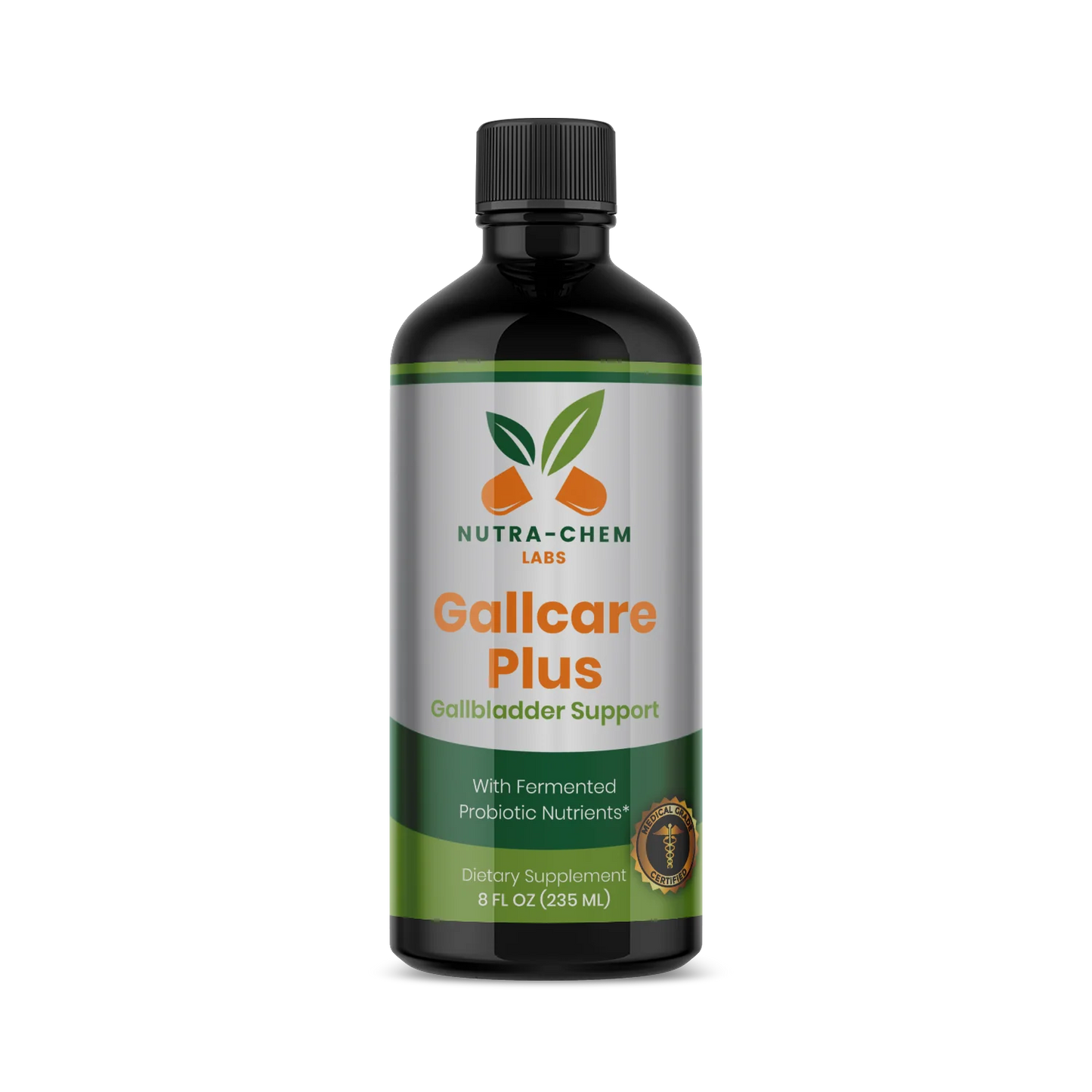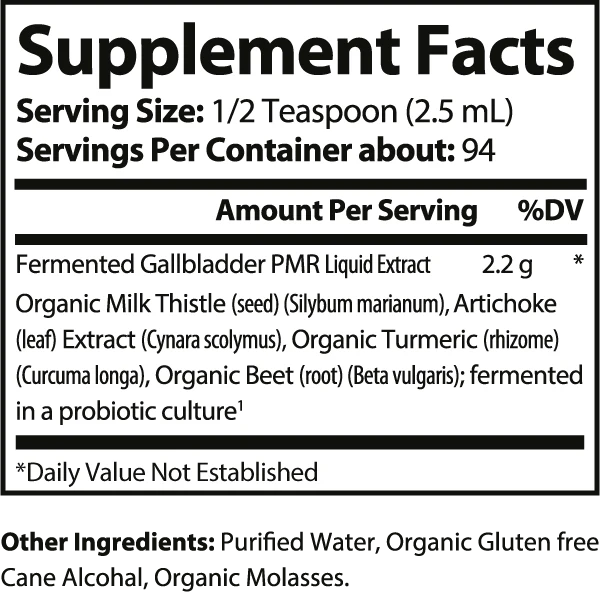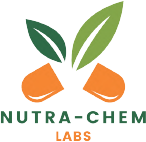- Description
- Key Ingredients & Benefits
- Usage & Directions
- Quality Standards
- Warnings
- Sources
Gallcare Plus is formulated to promote gallbladder health, healthy bile metabolism, and immune support. Using cutting-edge ND Technology™ for rapid delivery and enhanced bioavailability, Gallcare Plus provides efficient nutrient delivery to support optimal gallbladder function. This unique formula combines high-quality ingredients such as milk thistle, artichoke, and turmeric, offering comprehensive bile and gallbladder support.
Organic Milk Thistle:
-Supports liver health, provides antioxidant effects, and reduces inflammation through silymarin compounds.
Artichoke Leaf Extract:
-Enhances digestive health, influences lipid metabolism, and aids in glucose regulation.
Organic Turmeric:
-Provides antioxidant, anti-inflammatory, and cardio-protective benefits; supports liver and joint health, and helps regulate blood sugar.
Organic Beetroot:
-Supports cardiovascular and immune health, optimizes blood pressure, and contains anti-inflammatory and anticancer properties due to high antioxidant levels.
Take 1/2 teaspoon mixed in water or juice, twice daily, or as directed by a healthcare professional. Shake gently before use.
Gallcare Plus is made in the USA, GMP-certified, and produced in an FDA-registered facility. With third-party testing, this formula ensures purity, safety, and bioavailability, standing out as one of the top supplements in quality.
-*These statements have not been evaluated by the Food and Drug Administration. This product is not intended to diagnose, treat, cure, or prevent any disease. -Tamper Seal: Use only if the seal is intact. Consult your health care practitioner if you are pregnant or nursing, taking medications, or have a medical condition, before taking this or any other product. -Store in a cool, dry place. Keep out of reach of children.
87. Clifford, T., Howatson, G., West, D. J., & Stevenson, E. J. (2015). The potential benefits of red beetroot supplementation in health and disease. Nutrients , 7 (4), 2801–2822. https://doi.org/10.3390/nu7042801
117. Chilelli, N. C., Ragazzi, E., Valentini, R., Cosma, C., Ferraresso, S., Lapolla, A., & Sartore, G. (2016). Curcumin and Boswellia serrata Modulate the Glyco-Oxidative Status and Lipo-Oxidation in Master Athletes. Nutrients , 8 (11), 745. https://doi.org/10.3390/nu8110745
118. Barzegar, A., & Moosavi-Movahedi, A. A. (2011). Intracellular ROS protection efficiency and free radical-scavenging activity of curcumin. PloS one , 6 (10), e26012. https://doi.org/10.1371/journal.pone.0026012
119. Banik, U., Parasuraman, S., Adhikary, A. K., & Othman, N. H. (2017). Curcumin: the spicy modulator of breast carcinogenesis. Journal of experimental & clinical cancer research : CR , 36 (1), 98. https://doi.org/10.1186/s13046-017-0566-5
120. Suhett, L. G., de Miranda Monteiro Santos, R., Silveira, B., Leal, A., de Brito, A., de Novaes, J. F., & Lucia, C. (2021). Effects of curcumin supplementation on sport and physical exercise: a systematic review. Critical reviews in food science and nutrition , 61 (6), 946–958. https://doi.org/10.1080/10408398.2020.1749025
121. Pivari, F., Mingione, A., Brasacchio, C., & Soldati, L. (2019). Curcumin and Type 2 Diabetes Mellitus: Prevention and Treatment. Nutrients , 11 (8), 1837. https://doi.org/10.3390/nu11081837
122. Ashtary-Larky, D., Rezaei Kelishadi, M., Bagheri, R., Moosavian, S. P., Wong, A., Davoodi, S. H., Khalili, P., Dutheil, F., Suzuki, K., & Asbaghi, O. (2021). The Effects of Nano-Curcumin Supplementation on Risk Factors for Cardiovascular Disease: A GRADE-Assessed Systematic Review and Meta-Analysis of Clinical Trials. Antioxidants (Basel, Switzerland) , 10 (7), 1015. https://doi.org/10.3390/antiox10071015
123. Mata, I., Mata, S., Menezes, R., Faccioli, L. S., Bandeira, K. K., & Bosco, S. (2020). Benefits of turmeric supplementation for skin health in chronic diseases: a systematic review. Critical reviews in food science and nutrition , 1–15. Advance online publication. https://doi.org/10.1080/10408398.2020.1798353
161. Varshney, R., & Budoff, M. J. (2016). Garlic and Heart Disease. The Journal of nutrition , 146 (2), 416S–421S. https://doi.org/10.3945/jn.114.202333
162. Fu, E., Tsai, M. C., Chin, Y. T., Tu, H. P., Fu, M. M., Chiang, C. Y., & Chiu, H. C. (2015). The effects of diallyl sulfide upon Porphyromonas gingivalis lipopolysaccharide stimulated proinflammatory cytokine expressions and nuclear factor-kappa B activation in human gingival fibroblasts. Journal of periodontal research , 50 (3), 380–388. https://doi.org/10.1111/jre.12217
163. Ried K. (2020). Garlic lowers blood pressure in hypertensive subjects, improves arterial stiffness and gut microbiota: A review and meta-analysis. Experimental and therapeutic medicine , 19 (2), 1472–1478. https://doi.org/10.3892/etm.2019.8374 164. Darooghegi Mofrad, M., Milajerdi, A., Koohdani, F., Surkan, P. J., & Azadbakht, L. (2019). Garlic Supplementation Reduces Circulating C-reactive Protein, Tumor Necrosis Factor, and Interleukin-6 in Adults: A Systematic Review and Meta-analysis of Randomized Controlled Trials. The Journal of nutrition , 149 (4), 605–618. https://doi.org/10.1093/jn/nxy310
268. Fan, C. H., Cao, J. H., & Zhang, F. C. (2016). The prebiotic inulin as a functional food - a review. European review for medical and pharmacological sciences , 20 (15), 3262–3265.
269. Ahmed, W., & Rashid, S. (2019). Functional and therapeutic potential of inulin: A comprehensive review. Critical reviews in food science and nutrition , 59 (1), 1–13. https://doi.org/10.1080/10408398.2017.1355775 345. Eisvand, F., Razavi, B. M., & Hosseinzadeh, H. (2020). The effects of Ginkgo biloba on metabolic syndrome: A review. Phytotherapy research : PTR , 34 (8), 1798–1811. https://doi.org/10.1002/ptr.6646
356. Chan, Y. S., Cheng, L. N., Wu, J. H., Chan, E., Kwan, Y. W., Lee, S. M., Leung, G. P., Yu, P. H., & Chan, S. W. (2011). A review of the pharmacological effects of Arctium lappa (burdock). Inflammopharmacology , 19 (5), 245–254. https://doi.org/10.1007/s10787-010-0062-4
390. Alazadeh, M., Azadbakht, M., Niksolat, F., Asgarirad, H., Moosazadeh, M., Ahmadi, A., & Yousefi, S. S. (2020). Effect of sweet fennel seed extract capsule on knee pain in women with knee osteoarthritis. Complementary therapies in clinical practice , 40 , 101219. https://doi.org/10.1016/j.ctcp.2020.101219




